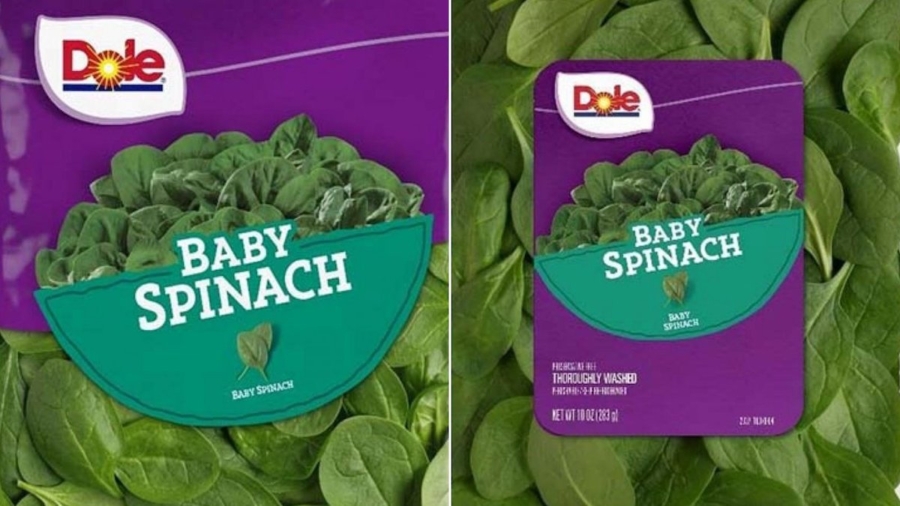Some packages of Dole baby spinach have been recalled because of concerns about salmonella contamination.
Dole Fresh Vegetables has issued a voluntary recall for baby spinach sold in 6-ounce bags and 10-ounce clamshell containers, with the use-by date of Aug. 5, the company said in an alert from the Food and Drug Administration (FDA).
No illnesses have been reported, the company said.
The recall is a precautionary measure after a sample of baby spinach tested positive for salmonella in Michigan, the company said.
The recalled product also was distributed in Illinois, Indiana, Kentucky, New Jersey, New York, Ohio, Tennessee, Virginia, and Wisconsin. The product is now expired and should no longer be available on shelves, according to the alert.
Anyone who may still have the product should throw it away, Dole said.

Salmonella
Salmonella is a bacteria which causes an infection called salmonellosis.
Salmonella is one of the most frequently reported foodborne illnesses in the United States, sickening an estimated 1.2 million people a year and killing approximately 450.
The bacteria can cause diarrhea, abdominal pain, nausea, vomiting, or headaches. Symptoms usually start within six hours to four days after getting infected and usually last up to seven days.
In April, at least 117 people in 10 states were sickened by salmonella after eating precut melons, according to the Centers for Disease Control and Prevention.
“Most people infected with Salmonella develop diarrhea, fever, and abdominal cramps between 12 and 72 hours after infection. The illness usually lasts 4 to 7 days, and most individuals recover without treatment. In some cases, diarrhea may be so severe that the patient needs to be hospitalized. In these patients, the Salmonella infection may spread from the intestines to the bloodstream, and then to other body sites. In these cases, Salmonella can cause death unless the person is treated promptly with antibiotics. The elderly, infants, and those with impaired immune systems are more likely to have a severe illness,” according to the Centers for Disease Control and Prevention.
The bulk of those are caused by food.
People should visit a doctor if they have diarrhea and a fever higher than 102 degrees Fahrenheit; diarrhea for more than three days that is not improving; bloody stools; prolonged vomiting that prevents you from keeping liquids down; or signs of dehydration, such as: making very little urine, dry mouth and throat, or dizziness when standing up.
![]()


